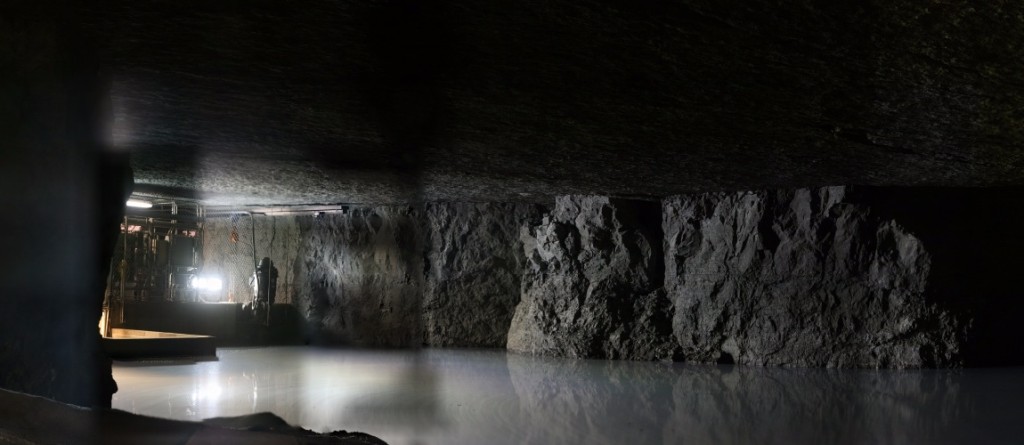Two hundred feet below the dairy farms of Boyers, Pennsylvania, a former limestone mine known as Iron Mountain now stores Marriott hotel records, Great American Insurance information, Department of Defense contracts, and Bettmann Archive historical images on black servers stacked in rows, waiting for disaster. Smooth concrete and light tile cover 1.7 million square feet of cave floor. Air cooled from a hundred-acre underground lake keeps the equipment temperature-controlled. Data winks neon green in guarded record vaults, biding time until a regional blackout, software bug, bio-terrorist attack, or nine-point earthquake somewhere else in the world makes this off-site backup suddenly necessary.
A century earlier, bearded men and thin-armed boys hunched in the tunnels by candlelight and blasted the earth out from under itself. With the rock they built state houses, train stations, skyscraper facades. They laid the foundations of cities. For years they cut the land open and bled the wound, then left it scarred and empty when they were through. All that remained was the dust from limestone sediment, a hole waiting to be filled with our replicated data.
I understand the instinct. I too have hidden a second self in the space left by heartbreak. I protect a part of who I am, keep it locked away as a failsafe against future catastrophe. Who doesn’t anticipate trauma? What fool wouldn’t protect himself from total loss? We remember being hollowed—the feel of the first shovel, the ring of the final blast—and lay plans for the inevitable worst. Fear fills an empty space, expands to fit its container.
But other things fill space too. Without concrete and computers, the cavern could have come back to life by now. Rats and raccoons would live near the entrance. Bats would swarm out to capture bugs at night. The cave walls would be covered with blind spiders, translucent snails, and the lungless red-orange salamanders that eat them. And perhaps a young girl would escape a nearby farmhouse some summer afternoon and wander in. She might listen to the slow drip of water, the echo of her own small voice. Maybe—if she pushes forward, if the dim beam of her flashlight holds—she might find the endless lake and spot something moving just beneath the surface.




